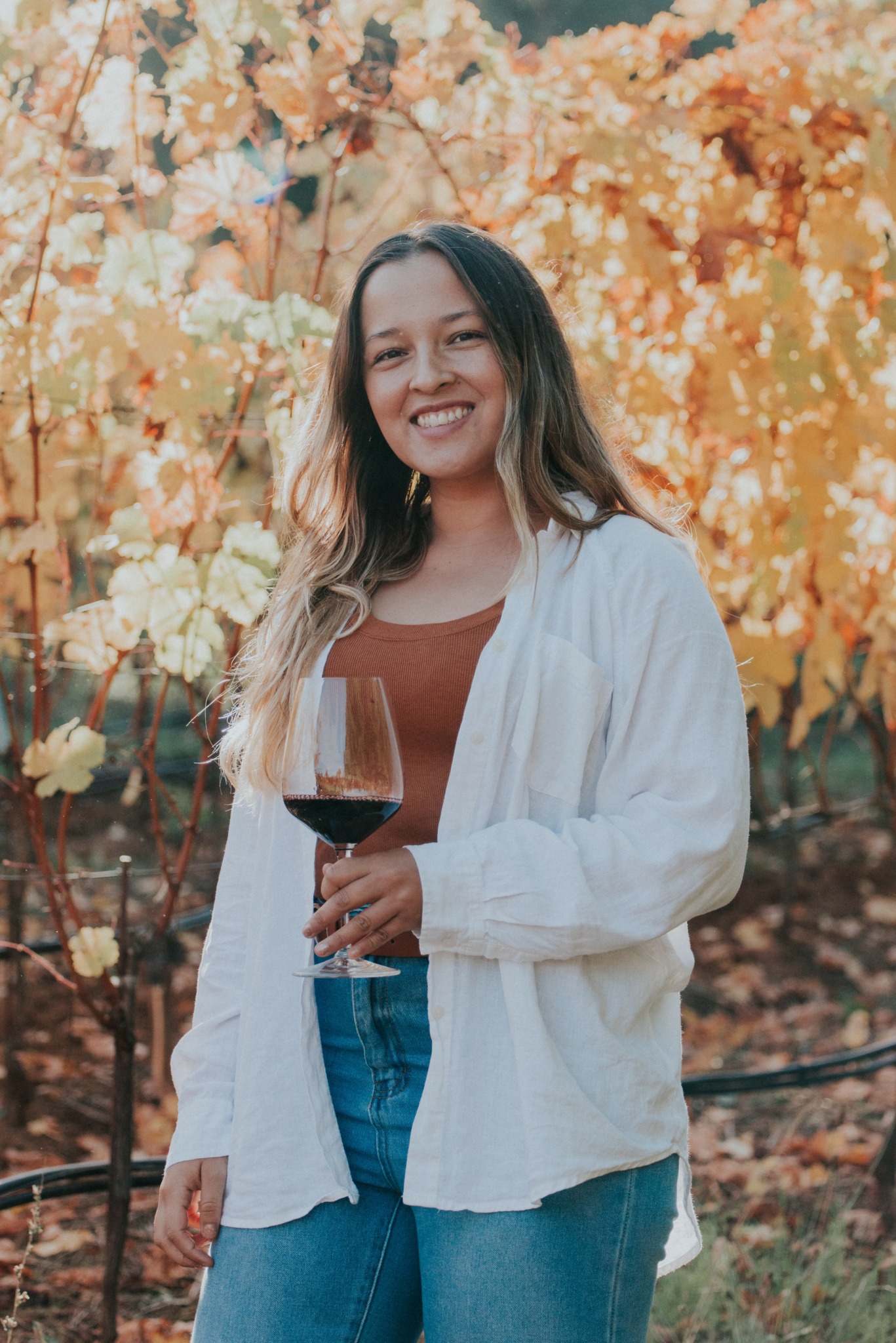We’re excited to introduce you to the always interesting and insightful Valentina Mendez Cortes. We hope you’ll enjoy our conversation with Valentina below.
Valentina, appreciate you joining us today. Let’s go back in time to when you were an intern or apprentice – what’s an interesting story you can share from that stage of your career?
I did my Bachelor’s internship as a harvest intern in a winery. It was during COVID—everything was shut down—but wineries still needed people for harvest season. They couldn’t stop, because, believe it or not, the demand for wine during the pandemic was incredibly high.
At the time, I knew absolutely nothing about wine. I’m from Colombia, and wine isn’t something that’s on most people’s shopping lists there. I was living in Nashville, young, and trying to find somewhere I could start gaining experience related to my Agricultural Engineering degree.
So, I applied to as many wineries as I could. I had my first job interview in English and online. I prepared for it like it was my dream job. And…I got it!
I moved to California to make wine. Everything I had researched online became a reality. It was a very demanding harvest season: 14-hour shifts, physically exhausting work, and mentally draining too. I had to switch from speaking Spanish—my first language—to working in English, using technical vocabulary I’d never even used in Spanish. It was definitely a challenge.
But I loved it. I was curious, and I wasn’t afraid to ask “why” at every step of the process. My coworkers were kind and willing to explain, and because I showed how much I cared, they started giving me more and more responsibilities.
With responsibility comes the risk of mistakes. And during my first harvest, I made a big one.
I was working with a very expensive grape juice, and I mistakenly altered its acidity—it ended up tasting more like lemon juice than wine. I was terrified. I cried at work. I felt incredibly guilty—not just because it would cost the company money, but because I knew how much work the full-time team had put in all year to grow that fruit. It felt like I had ruined everything with one “simple” mistake.
But when we addressed the situation as a team, I learned something really important: mistakes happen all the time in winemaking. And everything has a solution. We found a way to repurpose the juice, and even more importantly, that mistake helped us identify weaknesses in our process. It wasn’t just about me—it could have happened to anyone. So we made improvements to prevent it from happening again.
Now, we laugh about it. That story comes up all the time when I’m with friends in the industry. And I actually use it when we are training new interns—because it’s a perfect example of how we learn.
You’re going to make mistakes at work at some point. But I believe when you truly care about your work , they won’t happen twice. Because you’ll learn, grow, and return better prepared.
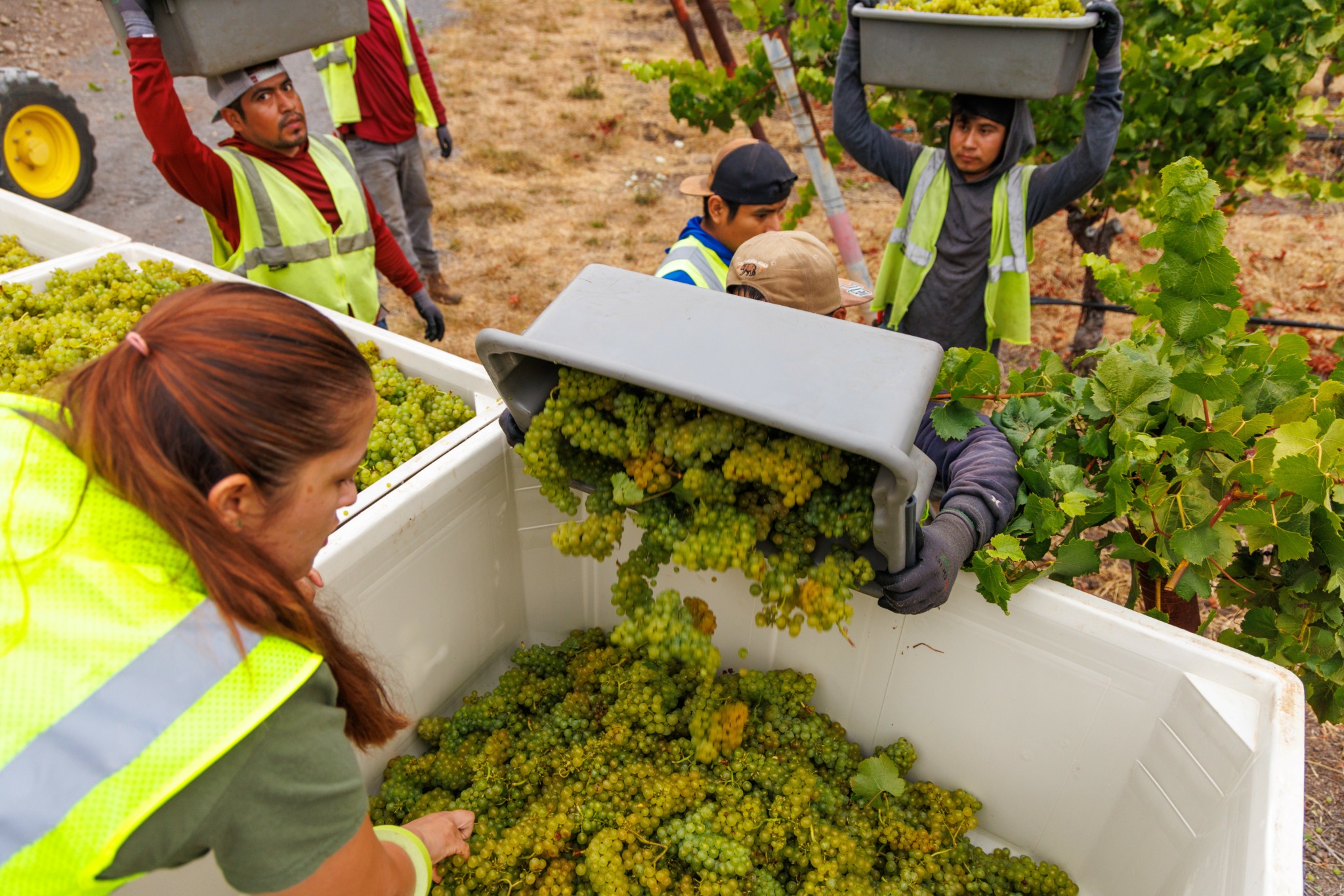
Valentina, before we move on to more of these sorts of questions, can you take some time to bring our readers up to speed on you and what you do?
I’m an Agricultural Engineer from Colombia. I love to dance, I’m learning to roller skate, and I start every morning the right way—with Colombian coffee. I moved to California to make wine. I got into the industry through an internship, and to be honest, I wasn’t planning to stay. I knew the bare minimum about wine.
But anyone who has visited wine country can understand why I decided to stay. You’re living in a beautiful place with incredible views, working in an industry where science and creativity come together to craft wines for all kinds of palates.
When people ask me what problems I solve for my clients, it takes me a moment to answer. I don’t think wine solves my clients’ problems, but it gives them a moment to pause, step away from the stress, and maybe see things from a different angle. Problems happen all the time, and people don’t forget them. But what many people do forget is how to enjoy the present. Wine helps make moments memorable. Whether it’s a celebration or a simple, happy pause in the day, wine is there—and every bottle we craft is meant to be part of those joyful, unforgettable experiences.
That doesn’t mean wine is only for the good days. It’s also there for the days when you need to slow down, take a breath, and just be. For those low-energy, deep-thought moments, wine is a companion. And by the time you finish your glass, maybe you can say “C’est la vie” and find the strength to keep going.
Right now, I work at a winery where female energy is dominant—Lambert Bridge Winery. In an industry where women have historically struggled to break into production and crafting roles, that’s a big deal. I’m proud to make wine in a space led by strong, talented women.
And throughout this entire answer, you’ve probably noticed I keep saying “we make wine.” That’s because making wine is never a solo job. It takes many hands to produce just one bottle. I’m proud to be part of a team where every role matters.
I’m also proud to be part of an industry where immigrants play a vital role. From the fields, to the creative minds in the winery, to the people who pour and sell the wine—there are immigrants from all over the world. That diversity is what makes wine so special. Wine is a universal language.
What sets me apart? Well, I’m just starting out in this industry. I still have a lot to learn and many experiences ahead. But even now, I’m helping create high-quality wines by working with whatever Mother Nature and the climate give us each year. I’m finding creative solutions in both the field and the cellar, all with the goal of making wine that people can truly enjoy and connect with—without feeling intimidated.
Wine is considered a luxury product, and I’m not trying to change that. But I do want to change the mindset of people who think they don’t deserve to treat themselves to wine. With every bottle we craft, I want people to feel like they deserve the world. Not the cheapest option—but good-quality wine, made from excellent fruit, with hours of work behind it. Because they do deserve it.

How do you keep your team’s morale high?
I started in my current position when I was 26 years old, two years ago. It was my first time in a management role. The learning curve over the past two years has been huge—and I’ve loved it, because I enjoy challenging myself.
But picture this: 26 years old, female, just starting in the industry, sitting in meetings with winemakers and growers who have been in the industry for over 30 years, in a male-dominated environment. It was intimidating. But I kept reminding myself that my opinion matters, that I bring fresh eyes to the table, and that I shouldn’t be afraid to ask questions or challenge ideas. That mindset helped keep my morale high, and that would be my first piece of advice when managing a team: maintain high morale, especially as a leader.
Now, I’ve moved into a field management role, working directly with the vineyard crews. Again, these are male-dominated teams, many of whom have been doing this for over 30 years. In fact, some of them know these vineyards better than the owners or the viticulturists—they spend the entire year out there.
But I found something in common with them, and I used it to build connection and trust: I’m an immigrant too. I speak the same language, and even though we’re not from the same country, we share a very similar work culture. I used that to my advantage, and we built a strong bond of trust. So my second piece of advice is: find tools that help you build trust with your team—whether it’s language, cultural understanding, or something else.
I spend hours with them out in the field, working alongside them, trying to identify how we can be more efficient, how I can make the job easier for them. I learned simple but important things—like how after lunch on a hot day, productivity slows down, or how it’s more efficient to focus on one mechanical task at a time rather than switching between jobs.
All of these insights came because I was out there with my team, working under the same conditions. That helped me manage time, workload, and activity planning more effectively—and also gave me the authority to demand performance when needed, because I had earned their respect.
So my third piece of advice: shadow your team. Spend a few days working alongside them, under the same conditions. Not just once—make it a regular practice. It’s amazing how much insight and advantage you can gain from that experience. Plus, it’s important for your team to see you present and involved in their day-to-day work—not just as a manager behind a desk, but someone who truly understands the reality they live

We’d love to hear a story of resilience from your journey.
I feel that my journey has been about growing through difficult moments. Being an immigrant builds a certain kind of resilience in you. I moved out of my country, leaving behind my mom, family, friends, and my boyfriend—at a time when my home country was facing challenges and opportunities were scarce, which encouraged me to look for new professional paths abroad.
When I moved to the U.S., I quickly realized that the language was not like what they teach you in English classes. It was frustrating, and at times, I felt like I wasn’t going to fit in. But I grew from that too. Resilience teaches you to be creative—and believe me, you get very creative when you’re trying to explain yourself in a different language! I look back and laugh at some of those moments. I always think of Sofia Vergara when she says, “You don’t know how smart I am in Spanish!”—because it’s true!
Starting over somewhere completely out of your comfort zone has shaped resilience as part of my character. And it’s not just about being an immigrant—believe me, even if you’re from Nashville and you move to California, it can feel like you’ve just moved to another planet.
When I moved to California, I had to start all over again—find a place to live, buy a bed, get a reliable car, make sure I was living in a safe neighborhood, and try to make new friends in a place where it feels like everyone already has their circle. It wasn’t just practical—it took a lot of emotional resilience to build a new life here while feeling like I was doing it all on my own.
And let me tell you: it’s still hard. But it’s not hard every day anymore. So try to understand that even those moments of difficulty, loneliness, pain, or frustration — whether in your professional or personal life — are helping you grow. You’re not alone, even if it sometimes feels that way. We’ve all been through something similar at some point.
Contact Info:
- Other: If you are planning a wine trip to Sonoma or Napa stop by Lambert Bridge Winery and let me show you the behind the scenes of wine : https://lambertbridge.com/
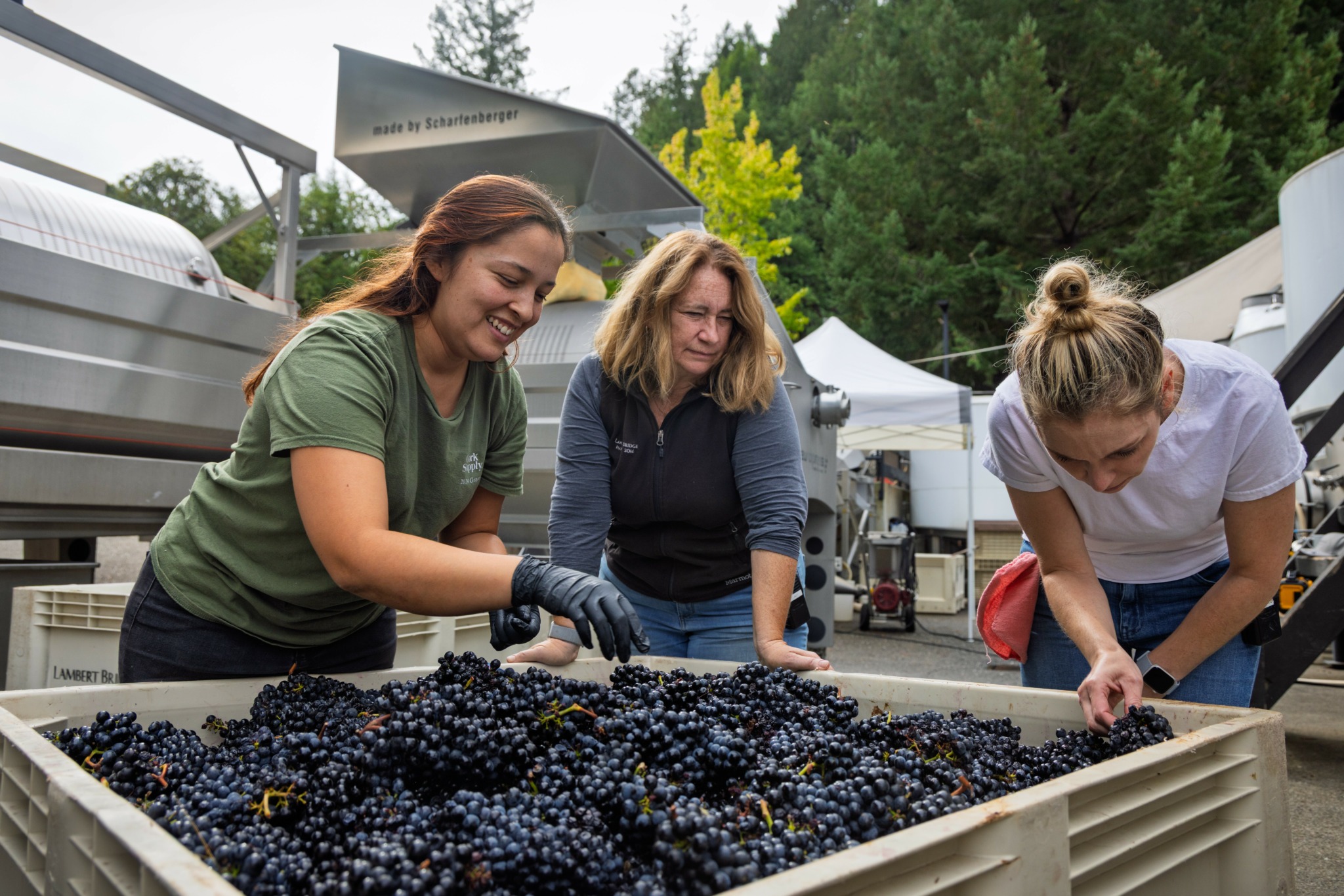
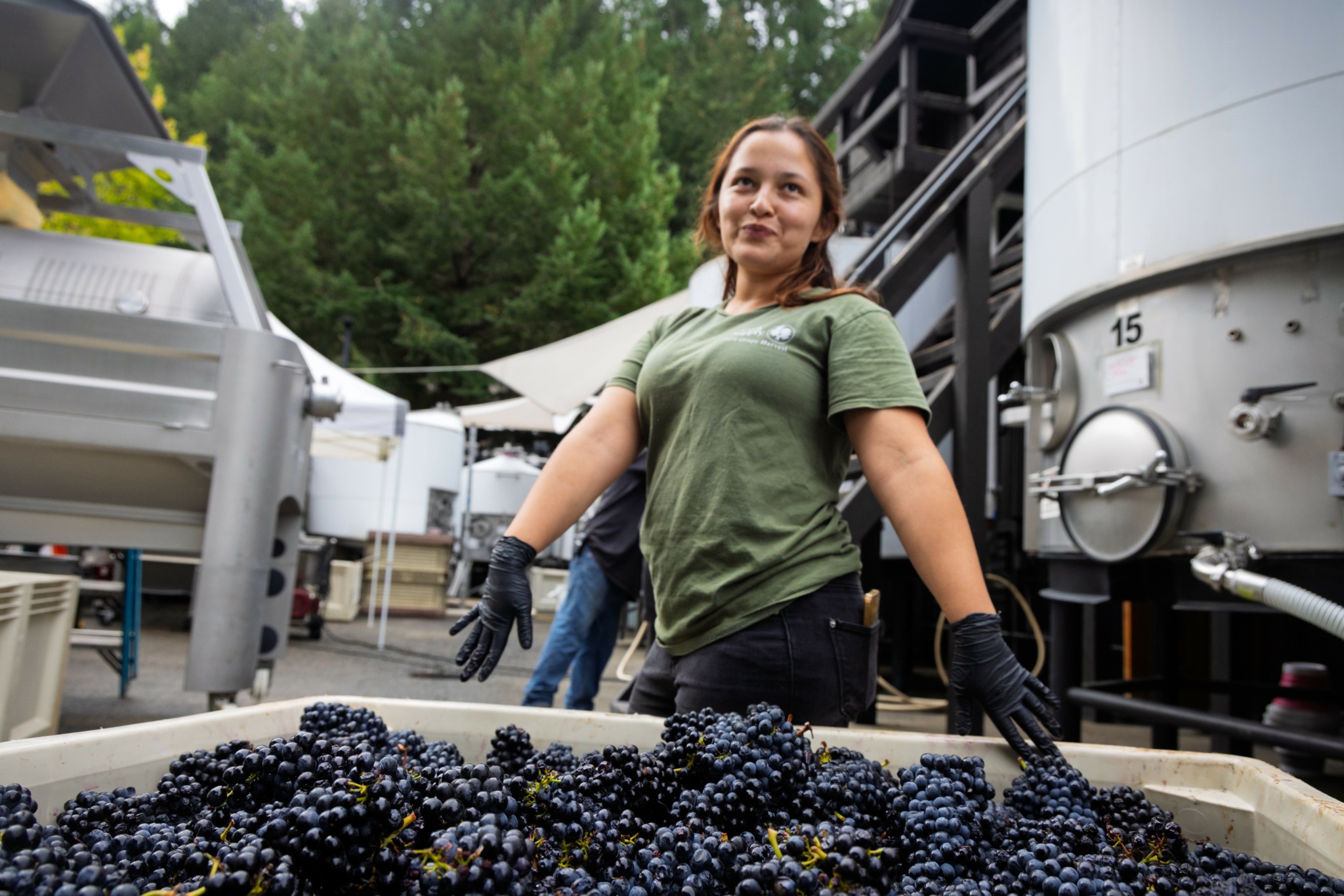
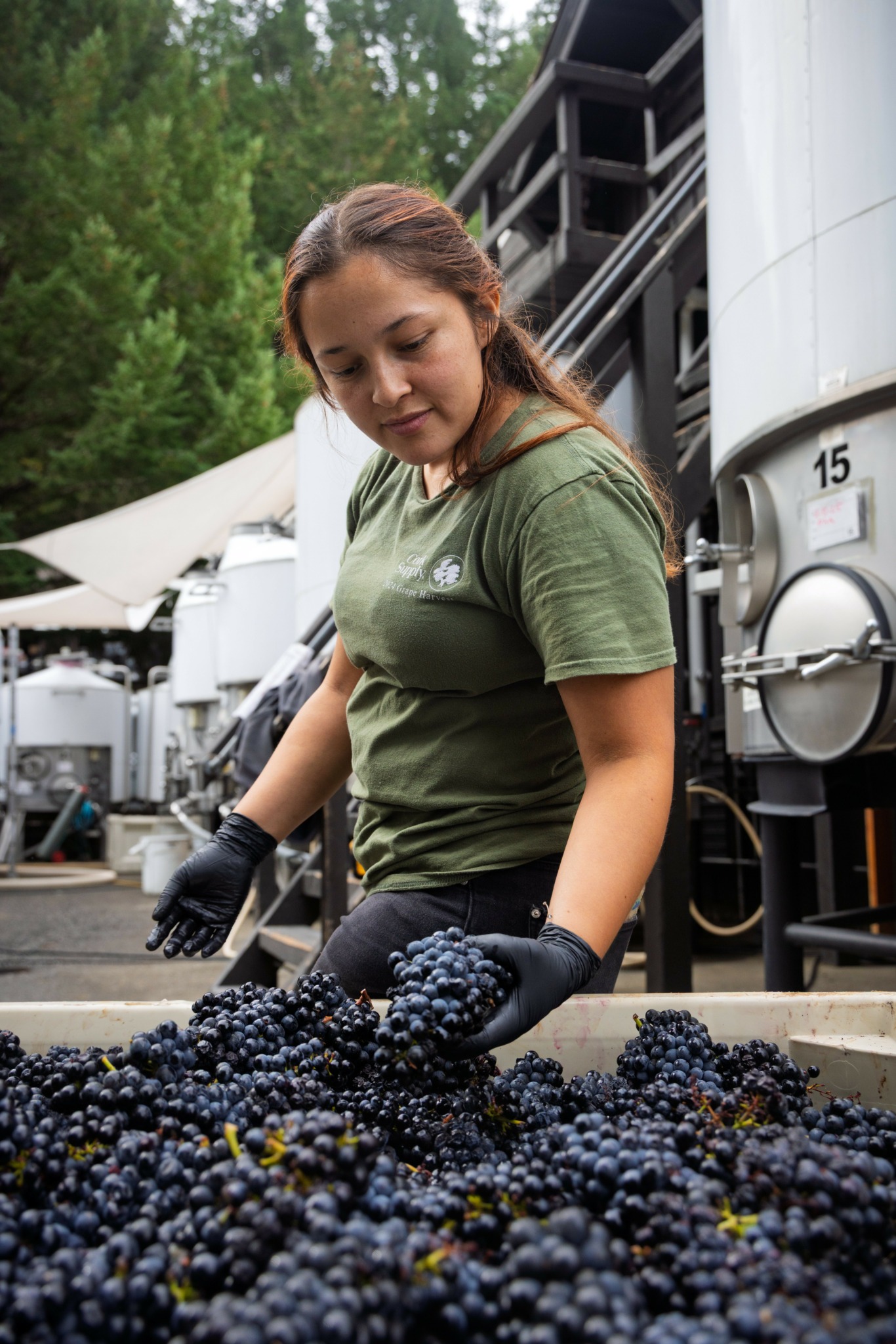
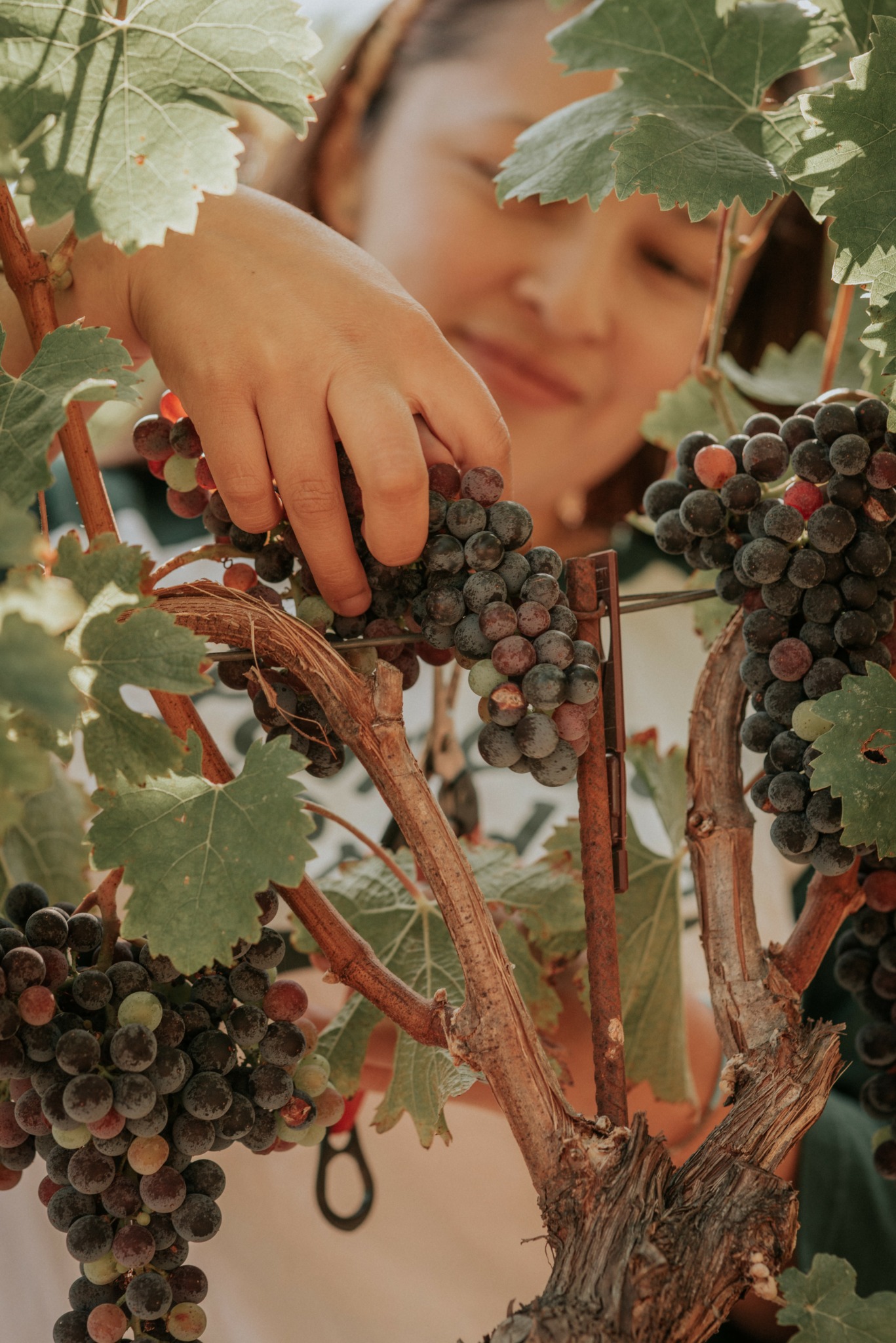
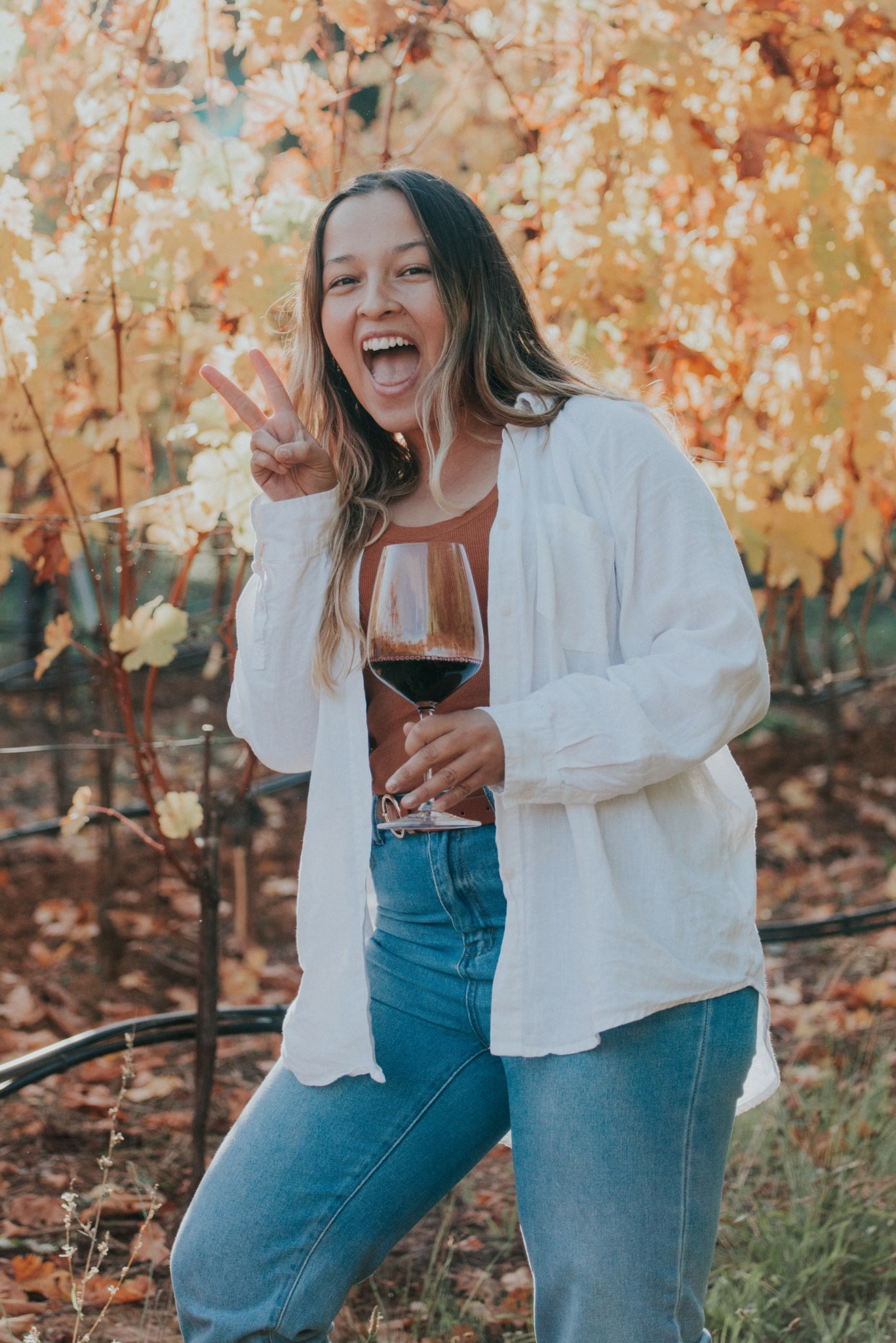
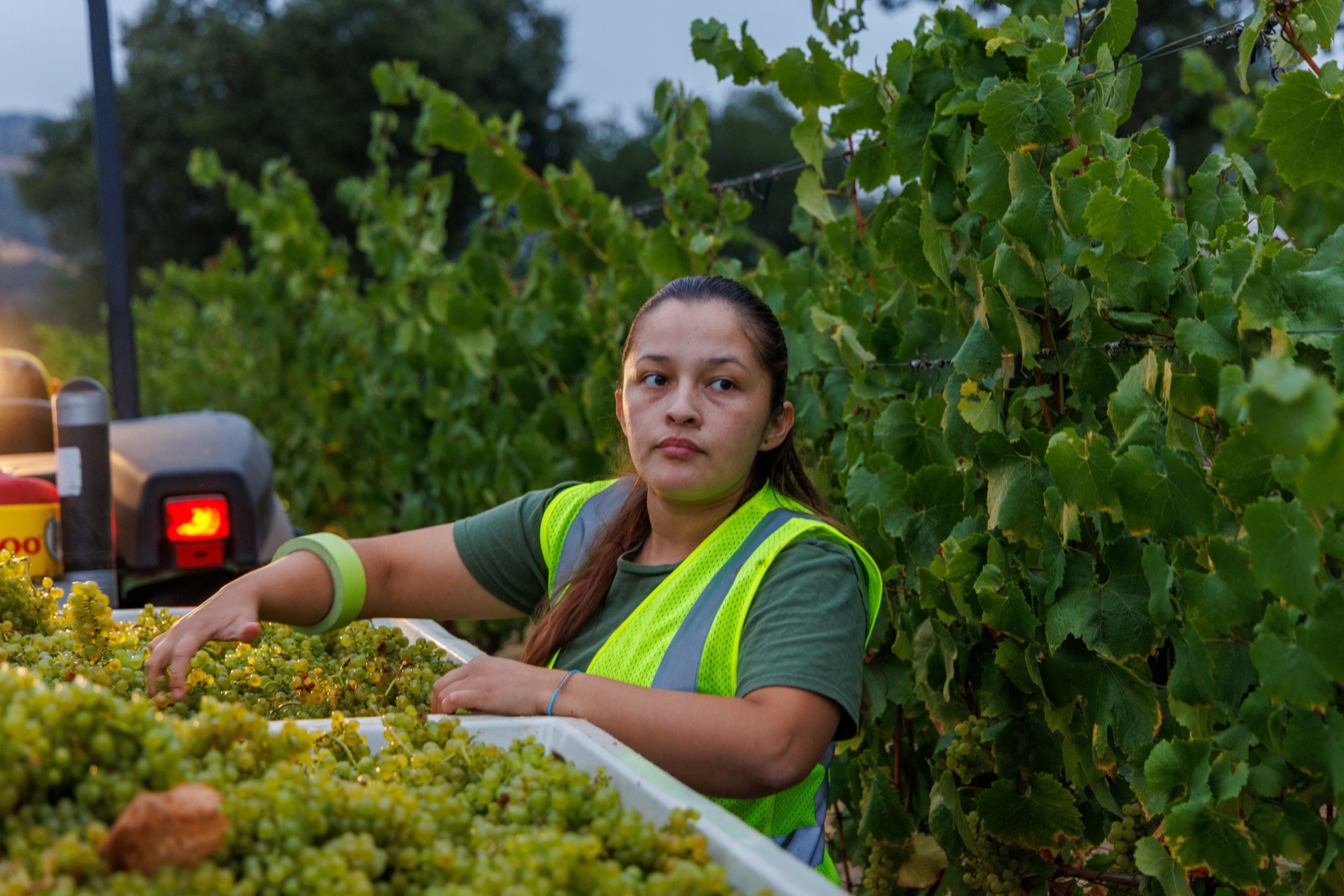
Image Credits
LAMBERT BRIDGE WINERY
WYATT GOODALE


